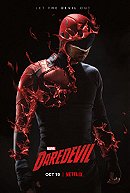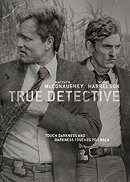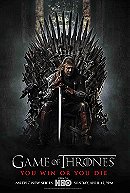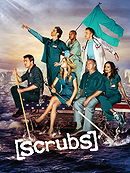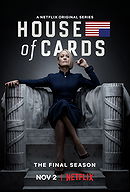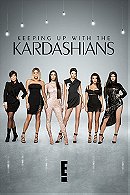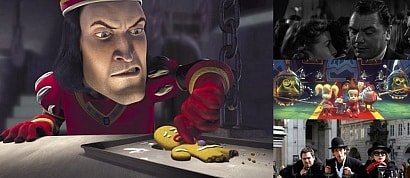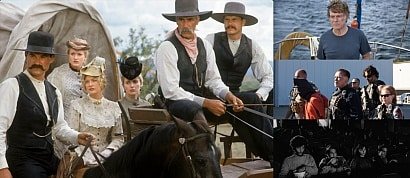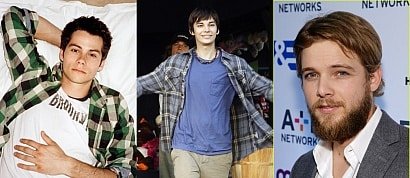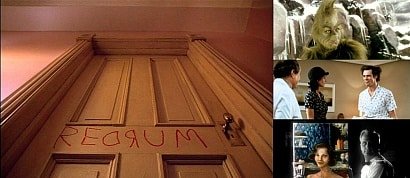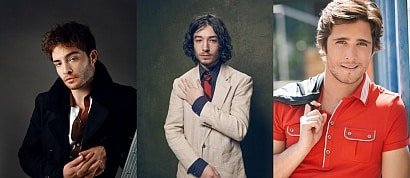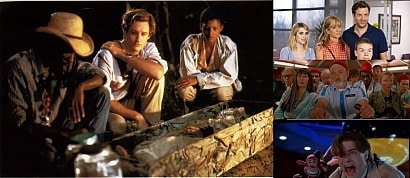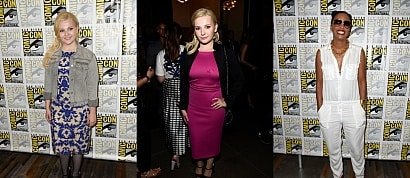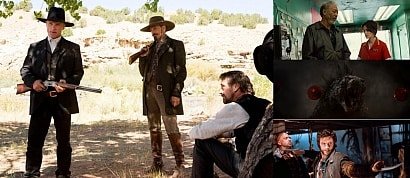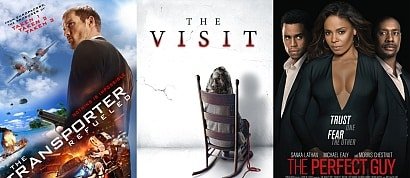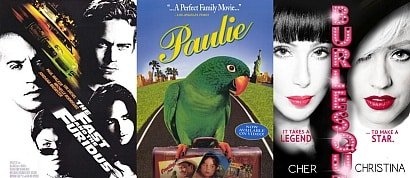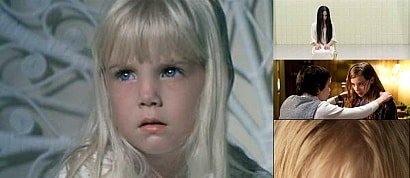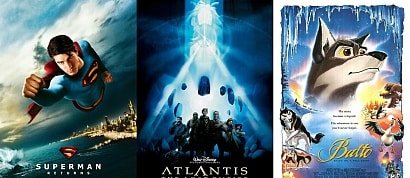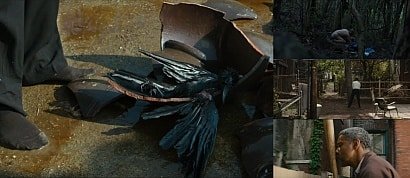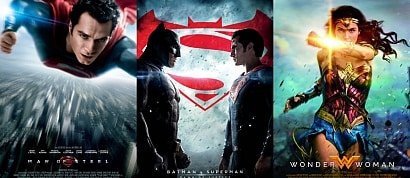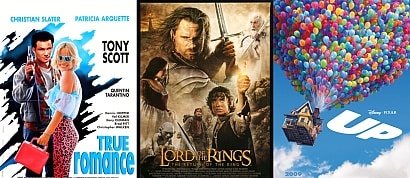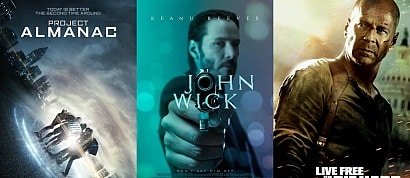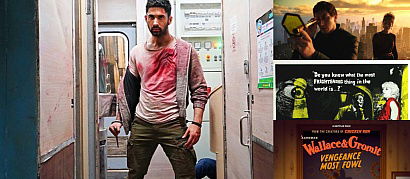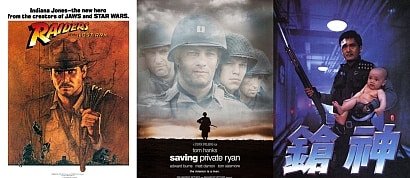Why TV Shows Are Better Than Movies
More Stories
I do enjoy the Guy Ritchie-directed Sherlock Holmes pictures with Robert Downey Jr. and Jude Law, but it's undeniable that they have yet to hit their stride. And there are simply not enough instalments. Yet, in the course of seven years, BBC's Sherlock has beget thirteen 90-minute episodes - essentially thirteen feature films. The show found its groove immediately, and even though some episodes are less successful than others, we always have the other episodes in a series to make up for it.
With thirteen episodes thus far, the creators have been given the chance to cover more of the original Arthur Conan Doyle stories, on top of doing justice to big villains like Moriarty. I mean, Moriarty in the Downey/Law movie was great and all, but bringing him back for the long-delayed third feature would be a stretch, not to mention we want to see more villains being covered.
Granted, quality over quantity is a solid mantra, but Sherlock scores home runs consistently. And with only three episodes per season, the creators are still abiding by quality over quantity. All-round, the show is just completely satisfying, far more satisfying than the Robert Downey Jr. series can ever hope to be.

More Adult-Oriented - Content Is Not Neutered As Much
You would never be able to make a Daredevil movie for the big screen that's remotely like this Netflix program. It's a Marvel property, yet it's thoroughly for adults. Adults are the target audience for television dramas, because kids stick to their big-budget blockbusters or nasty TV programs like Big Bang Theory.
Daredevil mixes gritty drama and superhero implausibility in a way we have never seen before. It's properly smart, and most of its plot machinations are highly compelling, not to mention it's insanely violent. Indeed, this is not a PG-13 outing - the violence is graphic as fuck. I was actually taken aback by the violence here, as I never expected something in the Marvel Cinematic Universe to be so full-on. And the impact of the violence is another reason why this show is so good: It doesn't sugar-coat how fucking dark this world is.

Longform Storytelling & Richness
The ability to tell a fully-fleshed story is one of the big draws of television, as stories are richer and characters are given the chance to come into their own. Band of Brothers and The Pacific covered WWII conflicts that could never be covered in the format of a three-hour motion picture.
The characters in a thick-tapestried, treachery-strewn series such as Breaking Bad acquire dimensions, depths, personal flaws, moral failings, and discordant quirks that seem integral and variable, not pinned on like badges. They're given sufficient time and room to sit and stew, to mull over the next move - that's not a luxury often extended to movie characters. You're also more forgiving of the duller hours in TV. These beats of downtime are how TV protagonists and those in their orbit take a novelistic hold on viewers, each story arc unveiling another aspect of their personality without extinguishing the ruthless ingenuity of Walt in Breaking Bad or the grey moral centre of Saul Goodman in Better Call Saul.
The slowly etched outlines of psychological terrain are what endow ambiguous heroes with their own 3D quality, a by-product of excellent scriptwriting that doesn't feel the compulsion to connect every ridiculous dot. Actors, in turn, don't have to serve as message carriers or exposition spewers.
Breaking Bad showed a character transforming over several years of his life in a way that could never be achieved in film. True Detective dedicated 8 hours to a single serial killer case. And shows like Firefly started out a little rough, but were given the chance to blossom because of the freedom that the television format provides.

More Daring, More Complex
Hollywood doesn't like to take risks anymore. Mostly we are seeing sequels, remakes, reboots, and movies based on a "proven" intellectual property. Original movies are mostly relegated to the indie scene these days. This lack of originality in Hollywood is because of the risks associated with it. No-one wants to take risks when the stakes are so high, because the motion picture business costs a lot of money.
But in TV, production budgets are lower and it's quicker & easier to produce, so executives are more willing to take risks. True Detective was easily one of the greatest things to happen to TV in years, but its patient storytelling and grim tone would never fly in a movie. If such qualities were pulled off in a movie, it might be a minor word-of-mouth success, but movie producers are on the hunt for the next big insane money-maker, not something that'll barely break even.
So, that's where TV steps in.

Format
Flashbacks are often used in motion pictures, but they usually come off as an over-used device. However, use of flashbacks in Arrow give denseness to the story that is simply not possible for a two-hour motion picture. Arrow's flashbacks don't even come off as flashbacks anymore - we are getting two stories unfolding concurrently that occur at different time periods.
Also, in TV shows, things can be set up early in a season that can pay off much later down the track, but this type of format only serves TV well. The Amazing Spider-Man movies tried this format by setting up all these story threads, but didn't get around to resolving anything, and now the series has been canned. In a few years time, those two movies will be thoroughly unwatchable with their loose ends and tonnes of set-up without payoff. At least with a TV show, if it is cancelled, creators get the chance to write a one-off special or even retool the season finale to give some closure. None of this is possible with movies. Ya think a studio will put $200 million into a sequel to a money-losing flop just to tie up loose ends? Lol.
Hell, just twenty episodes of The Flash aired over a few months is more satisfyingly rich, and has covered more bases than any big-budget superhero franchise, which necessitates a two or three-year wait between movies, and only one story and one or two villains covered in each. I am not saying that The Flash is necessarily better than most of the recent big-screen superhero movies, I am rather saying that its richness is more satisfying. And while you can still argue about quality over quantity, The Flash is extraordinarily well-written and takes full advantage of having twenty-three hour-long episodes in a single season. In fact, the television show is so well-done that I have precisely zero interest in the upcoming Flash theatrical feature that has no ties to the TV show. Covering Barry's origins again, and only exploring one villain and one story? Sounds boring compared to the utter brilliance of CW's addictive, expansive television series.
Without a doubt, television is the most ideal medium for superhero and comic book adaptations. While they cannot feature the high-budget, flashy CGI of their theatrical counterparts, the fullness of their storytelling and narrative more than compensates for this. In fact, looking at television shows like Arrow and The Flash, they do not need the budget boost, as CGI is used sparingly and the show-runners rely more on what counts – it's not always about big action scenes, after all. And with superheroes like Spider-Man, Batman and Superman remaining for the most part in the big screen realm, non-comic readers will be clueless about so many story arcs and villains that could be tackled in a television format. Yes, all of the above have received animated TV shows (and they are amazing), but such shows have become niche. And that is a shame, because the animated offerings are often perceived as the definitive representation of the superhero in question. Go figure.

Production Values Have Caught Up To Cinema
Game of Thrones is lensed using insanely expensive Arri Alexa cameras, the type that are used for big-screen motion pictures, and HBO provides enough funding for gorgeous sets, ornate costuming, and some hugely impressive CGI. Shows like Game of Thrones are easily comparable to big-screen movies in terms of production value. Years back, TV was cheap and more of a passive medium, so shows were produced for peanuts and not much mind was paid to impressive visuals. But that has all changed.
Now, solid writing is translated to the screen with enough money to do it justice. And in some cases, TV shows end up looking better than movies, because every cent counts in TV, whereas movies wind up with hugely inflated budgets. The look of Game of Thrones is actually preferable to the overtly digital Hobbit trilogy, as you can buy the GoT fantasy land as real rather than some cartoon. Hell, GoT - which costs around $60 million a season - looks more impressive than both the Hercules movies that were released in 2014.

More For Less
Let me explain this one a bit clearer. In a feature film franchise, every entry needs to reinvent the wheel and contain a three-act structure. In blockbusters, there's always the studio-mandated Big Noisy Climax, and downtime in one location usually doesn't last long.
With TV shows, creators have the freedom to experiment with different structures and resolutions, and there can be multiple-episode arcs as well as tidy, self-contained stories that take up one episode. Moreover, we can spend a long time in one location, and as long as the result is compelling, it can be more rewarding than rushing through a tonne of bullet points to get to the climax in good time.
Also, the format is very good for comedies. One 25-minute episode of a comedy show can simply be nonstop hilarity for 25 minutes, and it's satisfying. But a 90-minute comedy is usually an hour of hilarity, then 20 minutes of boring perfunctory drama, then a big finale and more laughs. And it doesn't always work or feel earned. Forcing emotional depth where it doesn't belong is a bad idea. That's why the Inbetweeners show is better than the movies - the movies try their hardest to wring some emotion out of the material, whereas every episode of the show is just fucking funny as hell without any of this dramatic crap.

The Bond You Develop With Characters
An extension of the longform storytelling point, you develop real connections and bonds to characters in TV shows. After spending so many hours and days with these people, their decisions affect you deeper. Their deaths make you cry like a child. And dear lord, when the show has to end and you realise you're apart to depart from your adoptive TV family for good, you feel devastated.
When I first binged through Scrubs, the season 8 finale made me a blubbering mess. I thought about how much fun the show was, how much I enjoyed being in the company of these characters, and how devastated I was that I was never going to see them again. It's the same with other long-running shows like Friends and How I Met Your Mother. It's just not possible to develop bonds this intense with movie characters. I mean, I've never cried when a movie is over simply because I wanted to see more of the characters. That's crazy.

Sharper Writing
This is a no-brainer. I do enjoy big-screen comedies when done properly, but on the whole, comedy shows do it much better. The likes of The Inbetweeners, Fawlty Towers, Coupling and Black Books have me in fits of laughter, with witty one-liners and dialogue that's far better than most movie comedies.

Actors Do Their Best Work On TV
The small screen used to be a smaller medium, but now big actors are doing TV shows, as it gives them the chance to do something bold and extend their acting skills in a way that movies never can.
I mean, Vince Vaughn is a very meh actor, but he's now part of True Detective. Idris Elba shines in TV shows like Luther and The Wire, but also does shoddy movies. Kevin Spacey hasn't done a great deal worth noting lately, but his turn in House of Cards is astonishing. Hey, before Aaron Paul became Jesse Pinkman in Breaking Bad, he even cameoed in Mission Impossible 3 as some little loser and didn't make much of an impression.
Go TV!
Note: A Few Caveats
I'm going to address a few additional points to make the discussion a bit livelier.
First of all, there are terrible television shows. Reality shows like The Biggest Loser, Keeping Up with the Kardashians, and whatever pregnant teen mum show being shown on MTV this week, they're all terrible. But should I really need to point out that the argument of TV being better than movies pertains to scripted shows? The argument of reality TV vs. cinema is a whole other thing, and nobody will ever engage in that. You can be a smartass and say that reality shows are scripted to a degree, but do I really need to go the extra mile and distinguish between carefully-scripted shows and slightly altered reality shows? Come on, guys.
You can say that this negates some of my favourite shows, improvisational comedies like Whose Line is it Anyway or Thank God You're Here, but that's a whole different kettle of fish altogether.
Also, keyboard warriors might want to point out that sitcoms are mostly awful, and far worse than regular cinematic comedies. And yeah, cheap nasty soap operas also populate our TV wavelengths. Granted, but I'm not trying to perpetrate the myth that everything on television is pure gold. God no. TV shows have hits and misses, just like movies. It's just that I find TV is a more reliable medium. I mean, all of Netflix's original programming is guaranteed to be worth a watch over some middling cinematic drama. Sitcoms and soap operas are all over the fucking place, but it's not hard to skip them. You could say it's not hard to skip shit movies, but how will you know a movie is shit? It's all based on taste. If your taste dictates that sitcoms and soaps are shit, you can skip them. But if you really wanna watch a movie that's in your ballpark, and it's shit, well that's an awful feeling. You don't get a lot of that with TV because of the reasons listed. If I'm interested in a TV show, I'm not often disappointed. I have been disappointed with shows like Terra Nova, and even The Walking Dead which turned to poo, but compare that to going to the cinema once a week and often walking away disappointed. And even if I do find something good, it's often let down by a number of pitfalls which plague movies but don't affect TV as much.
The last point I need to address, is that some might point out that I should look more into foreign movies - that I'm basing all of this on Hollywood movies and nothing more. Gee, do I really need to specify that I am talking about Western entertainment in this sense? No, I do not watch many foreign movies, and I certainly don't dip my toes in foreign TV shows much, but there's a reason I never brought up foreign entertainment in the above arguments. I am addressing Western entertainment, and in the field of Western entertainment, TV shows rule over movies. You can be a smartass and say that I'm narrowing my criteria to fit my view, but how hard is it to accept that I'm comparing scripted Western movies to scripted Western television? It's a field I'm quite fluent in.
 Login
Login
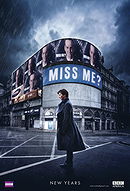
 2118
2118
 8.2
8.2
 9.1
9.1
